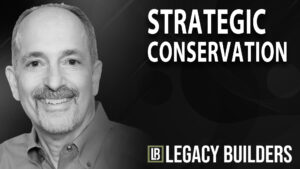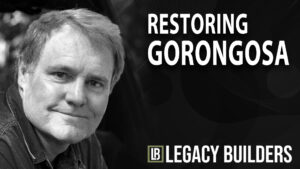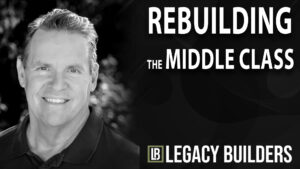Sec 1045: Small Business Stock Rollover of Gain

The Beauty of Section 1045
Enacted as part of the Taxpayer Relief Act of 1997 (effective for sales after August 5, 1997), a taxpayer other than a corporation may elect to roll over capital gains from the sale of qualified small business stock held for more than six months if another small business stock is purchased by the individual during the 60-day period beginning on the date of sale.
Accordingly, the gain is recognized only to the extent that the amount realized on the sales exceeds the cost of replacement small business stock purchased during the 60-day-period, as reduced by the portion of such cost, if any, previously taken into account. To the extent that capital gain is not recognized, that amount will be applied to reduce the basis of the replacement small business stock. The basis adjustment is applied to the replacement stock in the order such stock is acquired (FIFO).
You Must Be a C Corporation
Section 1045 exchange, as originally enacted, may not have granted qsbs rollover benefits to individuals who purchased, held and sold qualified small business stock indirectly, through a partnership such as a venture capital fund. This would have excluded limited partners and general partners in venture capital partnerships. The 98 Tax Act amended Section 1045 to specify that individuals who invest in small business stock through partnerships, limited liability companies, S corporations, regulated investment companies and certain types of trusts are entitled to the same rollover benefits as individuals who invest in stock directly. This means that the benefit of a taxfree rollover with respect to the sale of qualified small business stock by a partnership will flow through to a partner who is not a corporation if the partner held the partnership interest at all times that the partnership held the small business stock.
This revision in Section 1045 in July 1998 replaced the word ‘individual’ with ‘taxpayers other than corporations’. There was a strong concern that the amended Section might benefit everyone but the general partner…. the venture capitalist.
This lack of certainty would have been harmful to individual investors and the venture capital industry, as well as to small companies seeking capital. Individual investors who wish to invest in qualified small business stock and take advantage of IRC Section 1045 would have been discouraged from investing through a partnership, such as a venture capital fund (and instead would be purchasing qualified small business stock directly). An individual would lose the benefit of professional venture capital fund management. The venture capital industry would be harmed due to the resulting loss of investment capital. In the high-risk business of investing in small, emerging growth companies, the Act now lowers the risk by permitting individuals both the tax-advantage gained through pooling their resources with more sophisticated institutional investors in funds run by skilled, professional managers.
Get Familiar with Section 1202
To qualify, the replacement stock must meet the ‘Active Business Requirement” in Section 1202(e) of The Code for the six-month period following the purchase. For purposes of Section 1045, the term ‘qualified small business stock’ has the meaning given in Section 1202, i.e., stock acquired by the taxpayer at its original issue. Rules similar to those found in subsections (f) through (k) of Section 1202 will apply for purposes of the rollover provision. Thus, the benefit of the tax-free small business rollover flows from the partnership down to the partner.
The Internal Revenue Service favorably decided a key issue in September 1998 with Revenue Procedure 98-48. The Revenue Procedure ensures that general partners will be able to stock roll over the portion of gain allocated to the general partner’s carry…. at least when the venture fund sells or reinvests in the qualified small business stock. The IRS move is a welcome development because any possible tax disappointment would have fallen hardest on the general partners of venture capital partnerships….. those the tax break sought to benefit. The Revenue Procedure would permit the Section 1045 rollover election to be made by either the partnership or the partner.
Under the revised law, if the partnership reinvests the net sales proceeds in one or more QSB stocks within 60 days of collecting gain on the sale of QSB stock, then the partnership can easily defer the gain to all taxable partners, including the general partners carry, by electing the rollover provision under Section 1045. This fully captures the gain that is allocated to partners.
When the partnership reinvests insufficiently or declines to make a Section 1045 election, Revenue Procedure 98-48 allows the individual partner to make the election for his share of any gain that the partnership itself does not defer.
The language of Section 1045 and Revenue Procedure 98-48 are still vague about whether an entity reinvestment may count for a QSB stock purchased by an individual partner election. Because many venture capital funds distribute stock that is sold by the partners, this question is important. If a partnership is allowed to purchase replacement QSB stock to satisfy the requirements of a partner’s election, the IRS will have to give us additional guidance on how to allocate the entity’s dollars of replacement QSB stock among the partners.
A reasonable approach with careful record keeping that documents the allocation should be acceptable. The Section 1045 election is available for sales of QSB stock occurring after the August 5, 1997 date, and may be made by the extended due date for filing the income tax return for the year in which the QSB stock is sold.
California Taxation
California does not conform to the 75 percent and 100 percent exclusions applied for federal tax purposes. California allows exclusion of 50 percent of the gain from disposition of QSBS and conforms to Section 1045 rollover example gain deferral for QSBS sales made before January 1, 2013, but requires:
• At least 80 percent of the corporation’s payroll be attributable to employment located within California during substantially all of the holding period.
• At least 80 percent of the corporation’s assets be used in the active conduct of qualified trade or business within California during substantially all of the holding period.
The bill AB 1412 enacted in 2013 eliminates the two-part test above after it was held unconstitutional but retains the requirement that at least 80 percent of the corporation’s payroll be attributable employment located within California at the time of stock issuance to qualify for the 50 percent gain exclusion for QSBS sales made in taxable years beginning after December 31, 2007, and before January 1, 2013.
California also does not conform to the AMT tax preference applied for federal tax purposes. It picks up one half of the gain exclusion, i.e. 25 percent of the total gain from disposition of QSBS, as a tax preference item.
Without further legislation, the California 50 percent gain exclusion will not be available for QSBS sales made on or after January 1, 2013.
To receive our free newsletter, contact us here.
Subscribe our YouTube Channel for more updates.

Alan Olsen, is the Host of the American Dreams Show and the Managing Partner of GROCO.com. GROCO is a premier family office and tax advisory firm located in the San Francisco Bay area serving clients all over the world.
Alan L. Olsen, CPA, Wikipedia Bio

GROCO.com is a proud sponsor of The American Dreams Show.

The American Dreams show was the brainchild of Alan Olsen, CPA, MBA. It was originally created to fill a specific need; often inexperienced entrepreneurs lacked basic information about raising capital and how to successfully start a business.
Alan sincerely wanted to respond to the many requests from aspiring entrepreneurs asking for the information and introductions they needed. But he had to find a way to help in which his venture capital clients and friends would not mind.
The American Dreams show became the solution, first as a radio show and now with YouTube videos as well. Always respectful of interview guest’s time, he’s able to give access to individuals information and inspiration previously inaccessible to the first-time entrepreneurs who need it most.
They can listen to venture capitalists and successful business people explain first-hand, how they got to where they are, how to start a company, how to overcome challenges, how they see the future evolving, opportunities, work-life balance and so much more..
American Dreams discusses many topics from some of the world’s most successful individuals about their secrets to life’s success. Topics from guest have included:
Creating purpose in life / Building a foundation for their life / Solving problems / Finding fulfillment through philanthropy and service / Becoming self-reliant / Enhancing effective leadership / Balancing family and work…

MyPaths.com (Also sponsored by GROCO) provides free access to content and world-class entrepreneurs, influencers and thought leaders’ personal success stories. To help you find your path in life to true, sustainable success & happiness. It’s mission statement:
In an increasingly complex and difficult world, we hope to help you find your personal path in life and build a strong foundation by learning how others found success and happiness. True and sustainable success and happiness are different for each one of us but possible, often despite significant challenges.
Our mission at MyPaths.com is to provide resources and firsthand accounts of how others found their paths in life, so you can do the same.
Partnerships for Strategic Conservation – Barry Gold
Barry Gold Outlines a Bold Vision for Conservation and Sustainable Development Africa is on the brink of a transformation—one that will define the future of the continent and, ultimately, the planet. With its population projected to double from 1.3 billion today to 2.2 billion by 2050 and reach nearly 4 billion by 2100, the demand…
Restoring Gorongosa National Park
Greg Carr’s Mission to Restore Gorongosa National Park: A Story of Conservation and Community Greg Carr’s journey from a successful technology entrepreneur to a dedicated philanthropist restoring Mozambique’s Gorongosa National Park is nothing short of remarkable. What began as a search for a meaningful way to give back has evolved into one of the most…
The Ownership Revolution: How ESOPs Can Strengthen the Middle Class
The Ownership Revolution: How ESOPs Can Strengthen the Middle Class For decades, the American middle class has been the foundation of economic stability, embodying the aspirations of millions. Yet, as Chester Woolley eloquently highlighted in his recent speech, this once-thriving segment of society is in decline. “The middle class seems to be shrinking. It doesn’t…
Dr. Stel Nikolakakis on The Power of Vision Therapy
Unlocking Potential: The Power of Vision Therapy Vision therapy is emerging as a transformative tool for individuals with learning disabilities, ADHD, concussions, and even high-performance athletes. Dr. Stel Nikolakakis, an optometrist and a pioneer in neuro-visual training, discovered the profound impact of vision therapy through a deeply personal experience—his son’s diagnosis with cerebral palsy. His…



